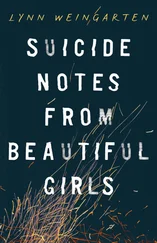Sonallah Ibrahim - That Smell and Notes From Prison
Здесь есть возможность читать онлайн «Sonallah Ibrahim - That Smell and Notes From Prison» весь текст электронной книги совершенно бесплатно (целиком полную версию без сокращений). В некоторых случаях можно слушать аудио, скачать через торрент в формате fb2 и присутствует краткое содержание. Год выпуска: 2013, Издательство: New Directions, Жанр: Современная проза, на английском языке. Описание произведения, (предисловие) а так же отзывы посетителей доступны на портале библиотеки ЛибКат.
- Название:That Smell and Notes From Prison
- Автор:
- Издательство:New Directions
- Жанр:
- Год:2013
- ISBN:нет данных
- Рейтинг книги:4 / 5. Голосов: 1
-
Избранное:Добавить в избранное
- Отзывы:
-
Ваша оценка:
- 80
- 1
- 2
- 3
- 4
- 5
That Smell and Notes From Prison: краткое содержание, описание и аннотация
Предлагаем к чтению аннотацию, описание, краткое содержание или предисловие (зависит от того, что написал сам автор книги «That Smell and Notes From Prison»). Если вы не нашли необходимую информацию о книге — напишите в комментариях, мы постараемся отыскать её.
Notes from Prison
That Smell and Notes From Prison — читать онлайн бесплатно полную книгу (весь текст) целиком
Ниже представлен текст книги, разбитый по страницам. Система сохранения места последней прочитанной страницы, позволяет с удобством читать онлайн бесплатно книгу «That Smell and Notes From Prison», без необходимости каждый раз заново искать на чём Вы остановились. Поставьте закладку, и сможете в любой момент перейти на страницу, на которой закончили чтение.
Интервал:
Закладка:
May
The Plague , Albert Camus. (Last lines of the novel) “As he listened to the cries of joy that rose above the town, Rieux remembered that this joy was still threatened. He knew from reading his books what the happy crowd did not, which is that the plague bacillus never dies or vanishes for good, that it can sleep for decades in furniture or clothing, that it waits patiently in bedrooms, cellars, trunks, handkerchiefs, and old papers, and that the day might come when the plague would rouse its rats and send them out among the people, for their immiseration or their instruction, when death would rip them from life’s happy embrace.”***
Yevtushenko, “Confessions of a Young Soviet,” L’Express : “The autobiography of a poet is his poetry, everything else is merely a footnote. The poet must offer the reader his feelings, his thoughts, his writings. To deserve the right to speak for others, he must pay the price and submit himself mercilessly to the truth.”
— After the Revolution, Soviet poets established the Association of Proletarian Culture and made the decision never to write except in the plural form, to always say “we.” At the same time, our literary critics very cleverly devised a theory of “the lyric hero.” According to them, the poet was required to extol the loftiest virtues so that he would not appear as himself in his poems, but rather as a model of the perfect man.
— Many old Bolsheviks who were arrested and tortured persisted in believing that they had been abused without Stalin’s knowledge. They never accepted that he had personally ordered their treatment. Some of them, after being tortured, traced the words ‘Long Live Stalin’ in their own blood on the walls of their prison.****
Stravinsky’s thoughts on reaching eighty: “Were Eliot and myself merely trying to refit old ships while the other side (Webern, Schoenberg, Joyce, Klee) sought new forms of travel? I believe this interpretation or distinction, much discussed a generation ago, is no longer viable. Our era is but a great unity in which we all share a part. It may indeed seem that Eliot and I made things that lacked living continuity, that we made art out of disjecta membra: quotations from other poets and artists, references to earlier styles (‘hints of earlier and other creation’). But we used these things along with anything else that came to hand, treating everything ironically in order to rebuild. We did not pretend to have invented new conveyors or new means of travel, for the true job of the artist is to refit old ships. He can say again, in his way, only what others have already said before him.”
In a book he published in ’48, entitled Organon for a Small Theater , “Brecht rejects his early artistic works as political and didactic. The theater must be a place for aesthetic pleasure and nothing else — though it is also necessary to keep up with the fashions of the age and work scientifically. We need a theater that does not merely make possible the emotions, insights, and impulses allowed by the relevant field of human relationships in which the actions occur. Instead, we need a theater that will exploit and generate ideas, so that they might play a role in changing the world.” Brecht , Ronald Gray.
Must write about Cairo after studying her neighborhood by neighborhood, her classes, her evolution.
“You could say that in my last phrase I’ve joined the new realism. Its characteristic features are not at all the same as those of traditional realism, which is supposed to provide a faithful representation of life. The new realism goes beyond details and rounded characters. This isn’t an advance in style, but a change of content. The basis of traditional realism is life — you paint its picture, show how it works, extract its tendencies and what lessons it might offer. That’s where the story begins and ends: it depends on life and on the living, the way they dress, the details. For the new realism, the motive for writing lies in ideas, in specific passions that make reality into a means for expressing them.” Naguib Mahfouz.
June
John Dos Passos (born 1896), the total, panoramic view. Journalistic spirit. The city itself rather than a particular individual in the USA Trilogy .
Hemingway: A tight frame with three dimensions: Simple character. Simple style. Simple setting. In The Green Hills of Africa , he talks about four-dimensional prose: the kind that hasn’t yet been written, but which is possible. There is a fourth and a fifth dimension (the symbolic?).
Hemingway, The Writer as Artist , Carlos Baker, translated by Dr. Ihsan Abbas.
— On Africa: “ You ought to always write it. Write it down, state what you see and hear, without worrying what you might get out of it. ”
— “Where we go, if we are any good, there you can go as we have been.” The practical standard is participation. There are other practical standards: the truthfulness of the writing, its vital verisimilitude (in other words, nothing that is in life, whether language, thought, or action, can be wholly excluded without some loss to the vital principle).
— Hemingway’s experience in Africa in the translation of reality. He says in the introduction to Green Hills : “Given a country as interesting as Africa, a month’s hunting there, the determination to tell only the truth, and to make all that into a book — can such a book compete with a work of the imagination?” The answer is that it certainly can, provided the writer is skilled, as well as being committed to both truth and beauty — in other words, the way it was + formal construction. Yet the experiment also proved that the writer who takes no liberties with the events of his experience, who tells things exactly as they were and invents nothing, will place himself at a disadvantage in this competition [the intensity of “The Snows of Kilimanjaro” and “The Life of Francis Macomber”]. This book and the two stories established one aesthetic principle firmly in Hemingway’s mind: The highest art must take liberties, not with the truth but with the modes by which truth is translated.
— Hemingway and politics: “A writer can make himself a nice career while he is alive by espousing a political cause, working for it from the inside, making a profession of believing in it, and if it wins he will be very well placed. But none of this will help him as a writer unless he finds something new to add to human knowledge through his writing.”
— “ All bad writers are in love with the epic. ”
Eliot to the American poet Donald Hall, in an interview from ’59, published in The Paris Review : “I think that for me it’s been very useful to exercise other activities, such as working in a bank, or publishing even. And I think also that the difficulty of not having as much time as I would like has given me a greater pressure of concentration. I mean it has prevented me from writing too much. The danger, as a rule, of having nothing else to do is that one might write too much rather than concentrating and perfecting smaller amounts.”
July
On the night of July 13, ’63, I came across the text of a letter I intended to send to my sister. I think constantly of writing to her about my real feelings toward her and of describing many things. But my letters to her travel in more than one direction before they arrive. My sense that someone might read them and smile at their naïveté paralyzes me, as does the thought of meeting someone who had read these letters and could be looking at me and laughing to himself without my knowing. Although actually other people don’t care about your sentimentality. The thought that this might be the story of my life.
Читать дальшеИнтервал:
Закладка:
Похожие книги на «That Smell and Notes From Prison»
Представляем Вашему вниманию похожие книги на «That Smell and Notes From Prison» списком для выбора. Мы отобрали схожую по названию и смыслу литературу в надежде предоставить читателям больше вариантов отыскать новые, интересные, ещё непрочитанные произведения.
Обсуждение, отзывы о книге «That Smell and Notes From Prison» и просто собственные мнения читателей. Оставьте ваши комментарии, напишите, что Вы думаете о произведении, его смысле или главных героях. Укажите что конкретно понравилось, а что нет, и почему Вы так считаете.












